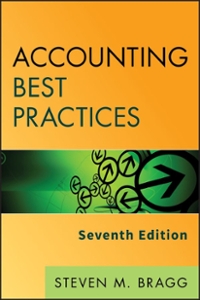Question
Insight Computing Limited (ICL), a private company, buys computers, parts and related equipment and resells them at a markup using the Internet and at its
Insight Computing Limited (ICL), a private company, buys computers, parts and related equipment
and resells them at a markup using the Internet and at its four warehouse store locations. Corporate
and retain customers stay loyal to ICL due to its low annual maintenance fees and excellent
customer service. This is important, as the technology sales and services area is highly
competitive.
The owner is involved in all business decisions, particularly in the purchasing decisions (models
and amounts) and in the approval of new corporate customers. He also approves all transfers from
the bank loan to the general bank account for operating finance needs. The bank loan is secured
by accounts receivable and inventory. The company currently has substantial room on the bank
loan, and does not see the need to renegotiate the loan in the near future.
ICL keeps minimal inventory - current model machines and peripherals for demonstrations to
prospective customers as well as a maximum of five units of each model. Any remaining stock
after new models are released is sold at a 30% discount. The implementation of the discount is
announced via an email by the accounting supervisor, at the verbal request of the owner.
Corporate customers send their orders to ICL using various methods: some use EDI (electronic
data interchange), others use e-mail, fax or regular mail. Once the order is received at the
administrative offices, it is entered into the sales order system. The computer systems
automatically check the order plus the accounts receivable amount to determine whether the
resulting total is less than the customer credit limit. If it is, then the order is routed to the closest
warehouse for processing. If the order amount causes the customer accounts receivable balance to
exceed the credit limit, then the order is routed to the corporate customer sales manager for review
and approval (if warranted). If the order plus accounts receivable is more than $5,000 over the
credit limit, then the order is reviewed and approved (if warranted) by the owner. Although ICL
has many customers, most do stay within their credit limits, and there are only a handful of orders
that need to be reviewed on a weekly basis.
As part of your audit, you used Audit Software to print a list of all customers who had accounts
receivable balances that exceeded their credit limit. To your surprise, there were about 150 such
customers. Most were over their credit limit by $3,000 or $4,000, while there were about ten who had greater excesses, one with a credit limit about $50,000 less than the accounts receivable
balance. Upon talking this over with the corporate customer sales manager, she explained that she
routinely approves customer purchases that are within the $5,000 range. The owner stated that the
other amounts were due to customers that had been provided with goods on consignment. If they
were not sold within about 45 days, they could be returned. The owner explained that he permits
consignment sales only if there are no new models expected, so that ICL can sell the products if
they are returned by the customer.
The receptionist is responsible for recording payments received by customers in the mail. She also
retrieves EDI and automatic banking records to record amounts received by e-payments. Once
every three months or so she produces an aged accounts receivable trial balance and points out to
the owner if corporate accounts have gone into arrears by more than six months.
Required:
A. Assess audit risk.
(2 Factors that Increase Audit Risk , 3 Factors that Decrease Audit Risk and
Conclusion
B. Assess internal controls at ICL with respect to sales and accounts receivable.
I. Provide two strengths in internal controls. Describe the strength and explain why it is
important.
II. Provide five draft management letter points discussing internal control weaknesses for
inclusion in the management letter to the client.
Organize your management letter points clearly, labeling
W - weakness in internal controls
I - impact to the client's operations or financial statements of the weakness
R - recommendation to the client for improvement
III. Conclude on Control Risk
C. Assess risk of material misstatement (IR x CR) for the valuation assertion of accounts
receivable.
(3 Factors that Increase RMM , 2 Factors that Decrease RMM and
Conclusion
Step by Step Solution
There are 3 Steps involved in it
Step: 1

Get Instant Access to Expert-Tailored Solutions
See step-by-step solutions with expert insights and AI powered tools for academic success
Step: 2

Step: 3

Ace Your Homework with AI
Get the answers you need in no time with our AI-driven, step-by-step assistance
Get Started


